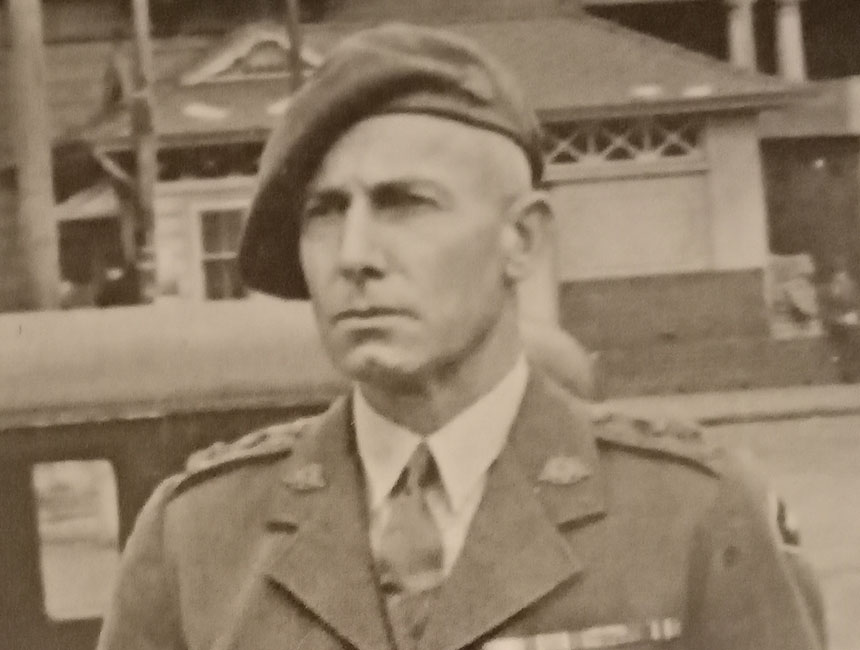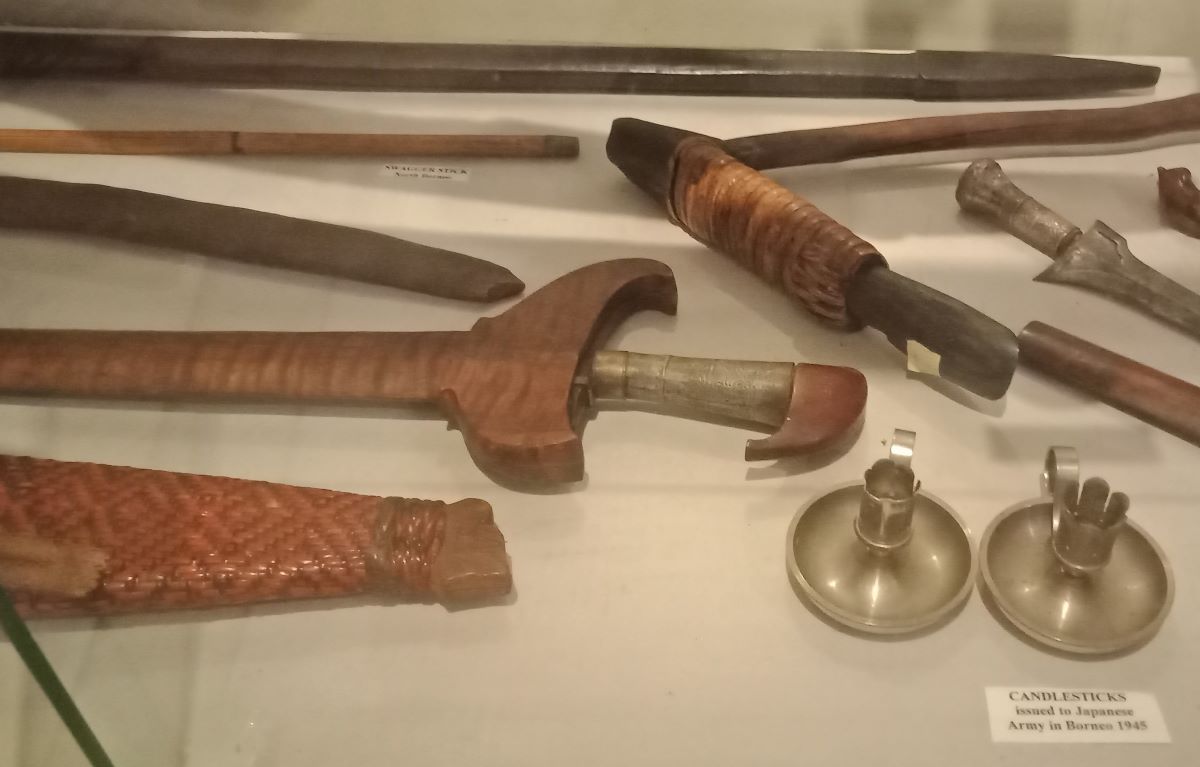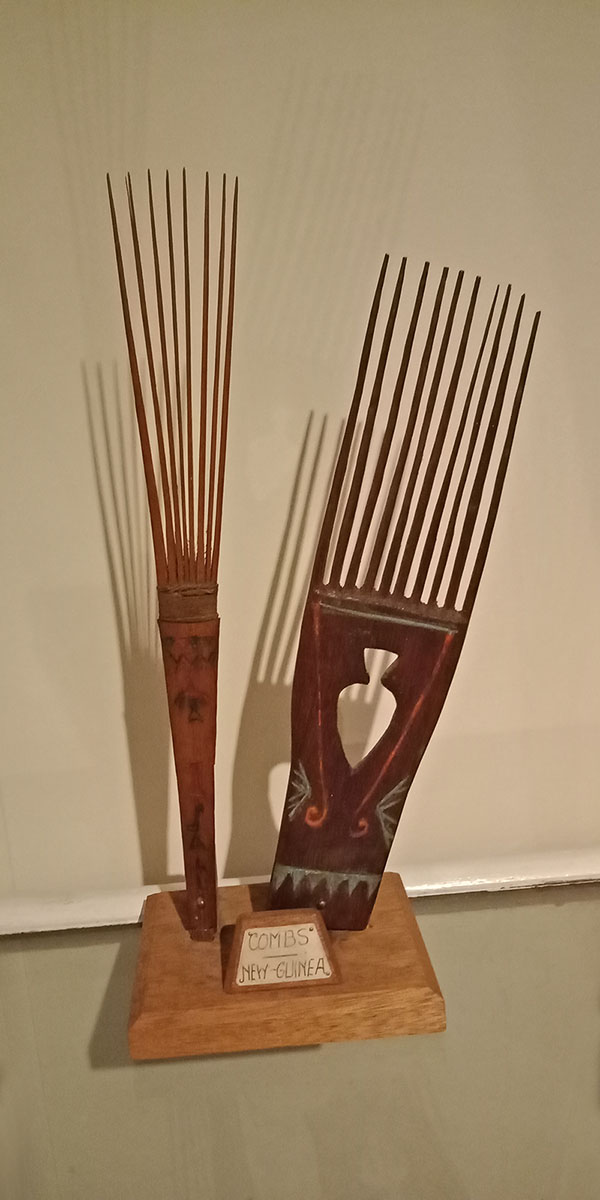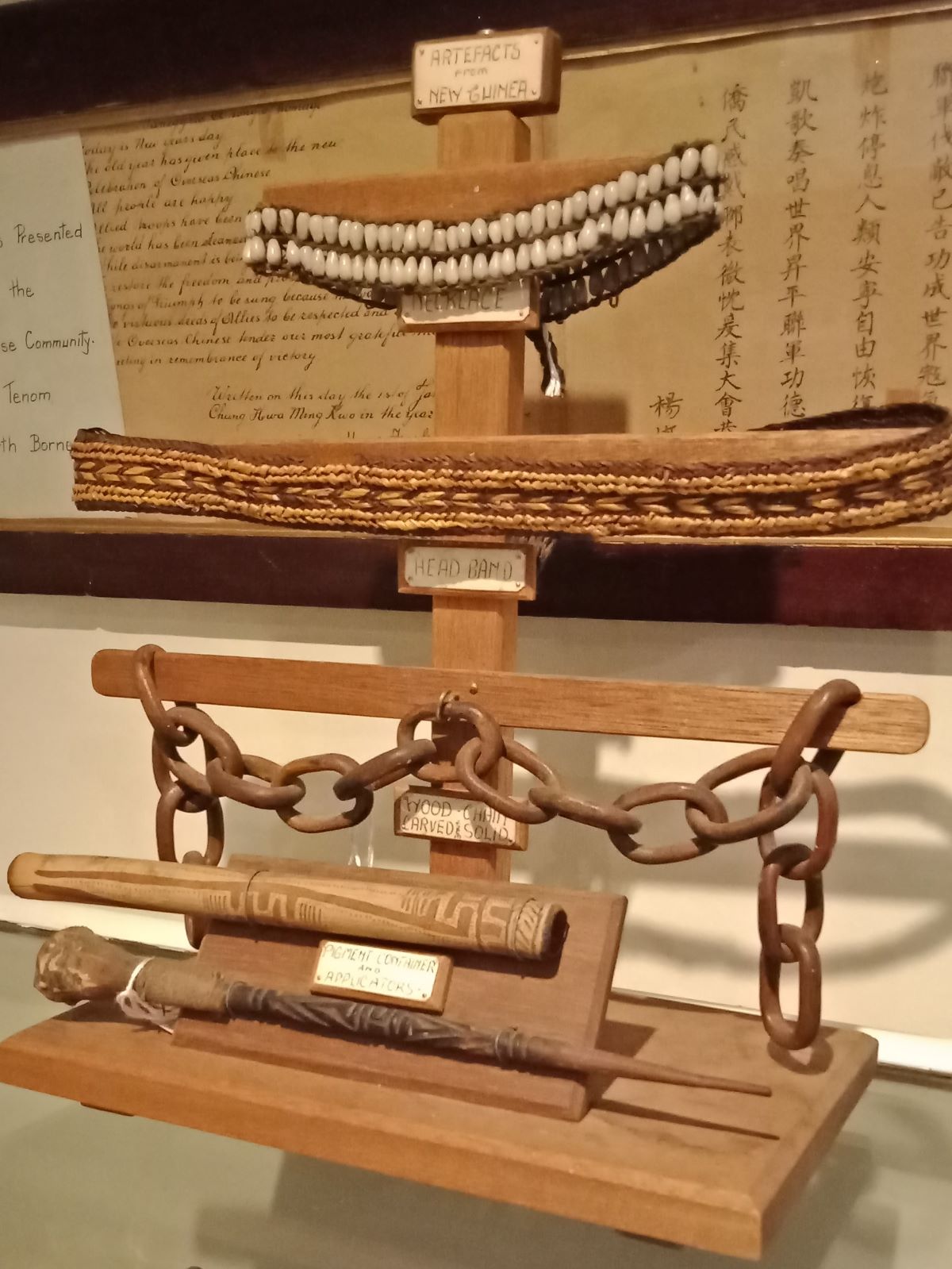Colonel Edwin Hill
1896 - 1980
Edwin Pritchard Hill was born at Blakiston in SouthAustralia and educated in Adelaide. Although underage, he joined the 1st A.I.F. in the 10th Battalion. He boarded the troopship 'Ascanius' and sailed from South Australia in October 1914.
In his Memoirs (THS research library), he describes landing training undertaken at Lemnos in February 1915.
"Climbing up and down ladders to boats, each man carrying full kit, extra rations and ammo. plus bits and pieces was good but tough training."
This training 'went awry' when landing at Gallipoli on the morning of 25 April 1915. 'All hell let loose.'
Edwin's Memoirs describe the fighting in detail, pointing to a lack of 'training and experience'. He was injured in the right thigh and eventually evacuated, recovering in England, writing that on many occasions he had been 'lucky'.
Returned to Australia, he 'was a lost soul' until going to Port Moresby in 1916 as a Patrol Officer. Again, his Memoir is a fascinating record of travelling around in canoes and contains vivid descriptions of the people and how they lived.
Edwin sailed to the United Kingdom in late 1916 wanting to join the war effort again. He undertook recruit training in 1917, later serving in Palestine, Syria, Italy and France.
From 1921 to 1925 Edwin served in British North Borneo as a district officer with periods in New Guinea. During this period he qualified in the Malay language and also passed law examinations up to a first class magistrate.
In 1925 he bought a farm at Bowling Alley Point near Nundle (top of Chaffey Dam) and became involved with local affairs, including on Nundle Shire Council for many years.
World War II, Borneo and New Guinea
During World War II, Edwin Hill served in the Far Eastern Theatre where he became a Supreme Court Judge and in 1950, the Deputy Commissioner in Borneo dealing with war damage claims. He travelled extensively between 1952 and 1965 and settled again on the dairy farm at Bowling Alley Point in 1966.
The collection of artefacts were donated by his son, Derek Hill and his family, to the Tamworth Historical Society.
